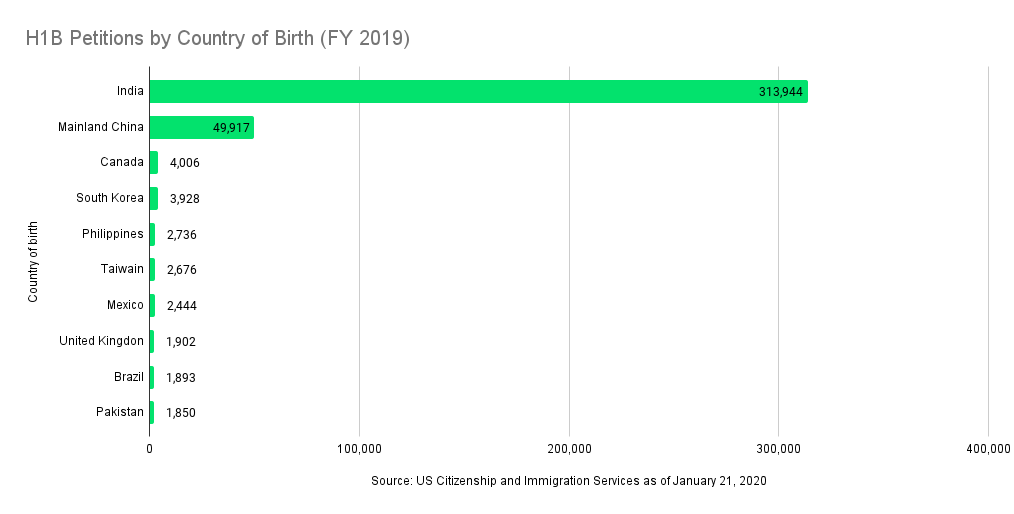Raised in Pakistan, Zikria Syed finished his computer science master’s degree from Drexel University in Philadelphia. He spent the late 1990s building software at Microsoft before he left to grow a series of healthtech startups over the last 15 years. His current company is PatientWing, which connects patients with clinical trials.
Today Syed represents an ideal of the American identity — and what innovation ecosystems should look like. The world’s best and brightest come for the prestige and promise of our universities, where they contribute to advanced research and commercialize ideas in our big, stable global marketplace. Those careers intersect both the world’s largest companies and new bets on a better future. Immigration boosts entrepreneurship and strengthens our workforce.
“Being an immigrant, you’re used to uncertainty,” Syed told Technical.ly, as part of our THRIVING series on immigrant entrepreneurs. “Not everyone has the stomach to go into a new situation without knowing how it is.”
Like most of the rich world, the American population is aging. That has both entrepreneurship and workforce consequences. An increase in a country’s median age of 3.5 years leads to a decrease of 2.5% in the entrepreneurship rate, notes influential research from James Liang — a big threat when global entrepreneurship was only 6.1% in 2010.
Meanwhile, our retiring Boomer population is far bigger than the rising Zoomer population. That presents a structural worker shortage.
Since the United States remains the world’s most desirable destination, immigration can help solve the problem — at least for a while, as birth rates fall worldwide.
In 2020, US immigrants started businesses at nearly double the rate of people born here, and according to a MIT study from last year, immigrants remain 80% more likely to start businesses than people born in the US. They also grow those companies. Immigrant-founded businesses create 42% more jobs in the United States than ones started by native-born founders, according to a 2020 paper.
Take a few points for context:
- Between 1990 and 2005, immigrants started a quarter of all venture-backed public companies in the United States.
- More than half of America’s unicorns, or privately-held companies valued at more than $1 billion, were founded or cofounded by immigrants, as of a 2018 analysis.
- More than a third of US-affiliated Nobel laureates have been immigrants.
A simple reason why this is true is pure self-selection bias. It takes resources and great effort to move across borders and oceans, so those who do it tend to be especially determined, or escaping especially dire circumstances — often both.
Yet immigration has for years remained another key issue lost in the partisan muck. Change is afoot. A bipartisan immigration bill introduced last month by Congresswomen Maria Elvira Salazar and Veronica Escobar is working its way through committee. Most attention has been paid to its pathway to citizenship, border infrastructure and employment-based visas targeting the agriculture sector. The bill also represents an overdue recognition of what should be a wholly bipartisan economic issue: People around the world want to come here, and we need them.

How do we get them here? There are an array of programs, though the most prominent tool for employers to bring in foreign-born tech workers is the H1B visa. More than three-quarters of petitions to the program in 2019 were made by Indian nationals, according to US Citizenship and Immigration Services, especially men from India. Other parts of the world contribute, too — though starting from a low base, the African continent is expected to be the world’s largest exporter of immigrant professionals, including entrepreneurs and tech workers.
Wherever they come from, H1B visa-holders have clustered in the research hubs on the East Coast and fast-growing Texas, according to a Pew analysis of data from 2010-2016.

Whatever pathway gets them here, they’re vital. A slew of prominent tech startups in Philly were founded by immigrants who had previously been effective employees of other tech firms, too. All told, immigrant entrepreneurs founded a quarter of all tech startups in Maryland between 2006 and 2012, according to analysis then.
Beyond those jobs and companies, immigrants make our communities more vibrant. Pakistani-born Syed represents that well, too. Part of what keeps him in Philadelphia is his love of the restaurants and culture. Yan, Aramouni and many other immigrant entrepreneurs and professionals Technical.ly interviews are embedded in their adopted homes.
True American exceptionalism thrives when we embrace people from around the globe and welcome them to identify as American — still an unusual feat set against the ethno-national identities of countries like China, Japan, Russia and Italy. The innovation-driven economies of the United States rely on their contribution, while America, in turn, offers something genuinely valuable in exchange.
By recognizing the power of immigration and the entrepreneurial spirit it brings, the United States can continue to forge its path as a global leader in innovation and prosperity.







